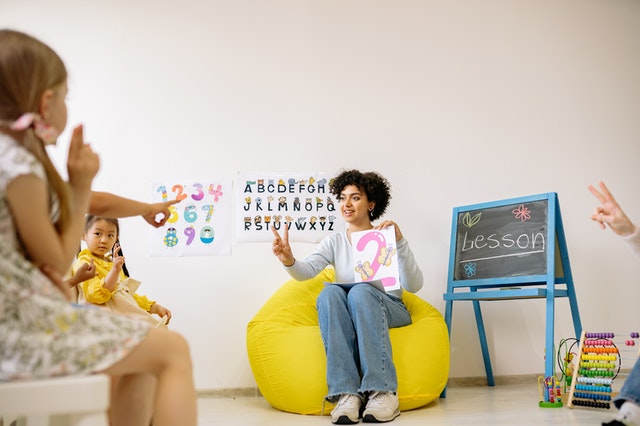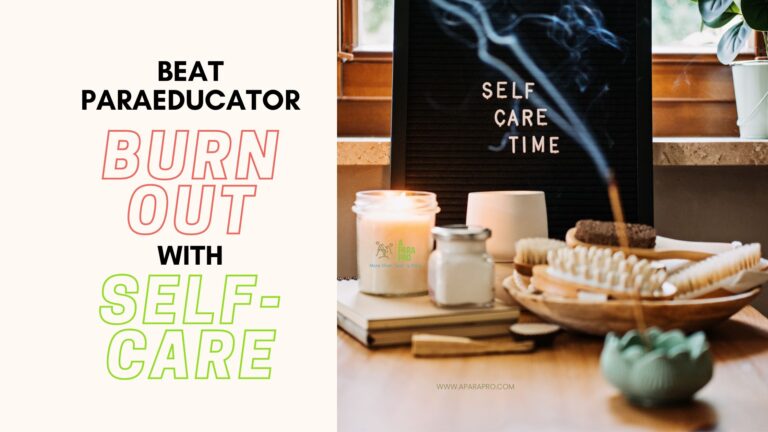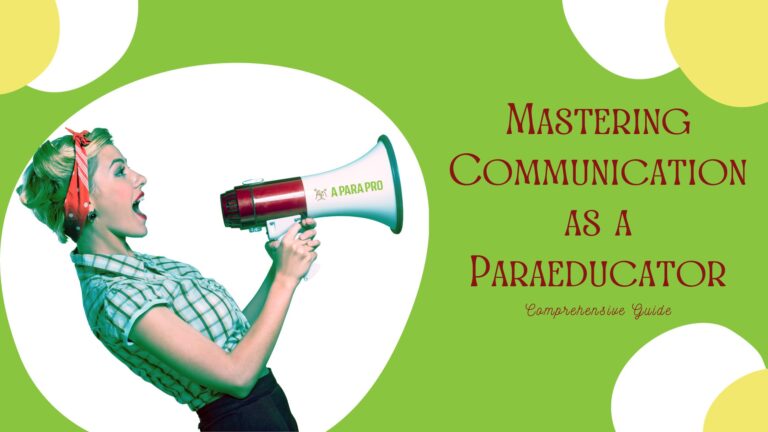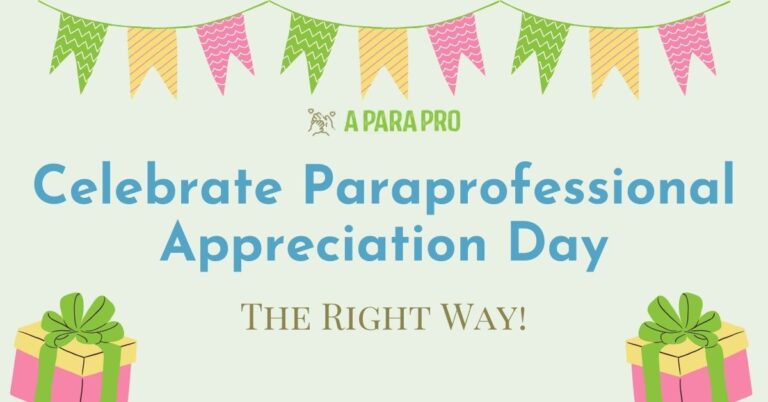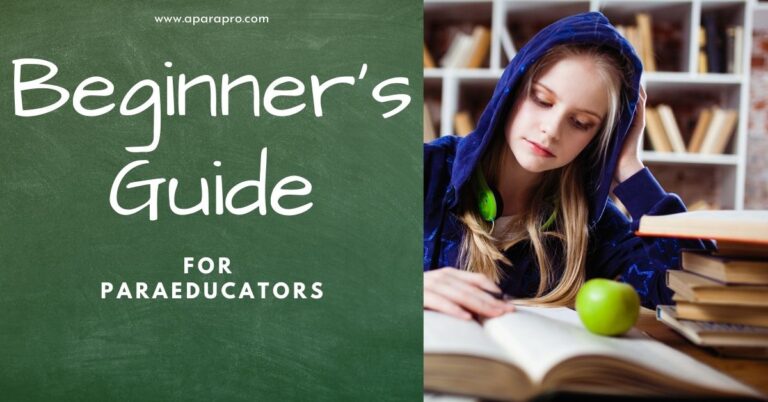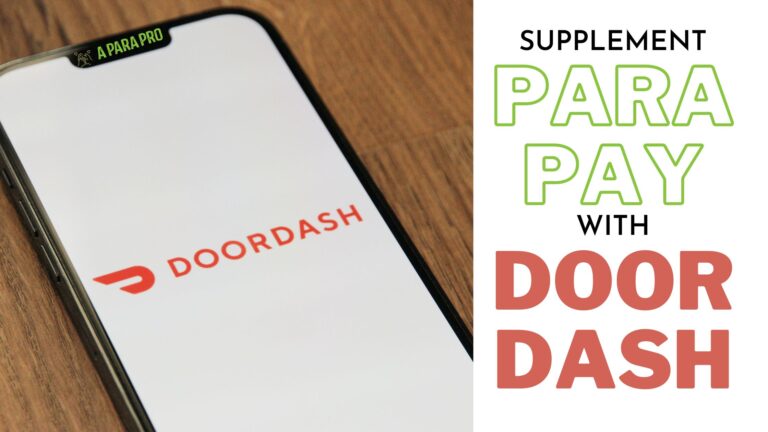5 Confidence Boosters for Paraeducators
These confidence boosters for paraeducators provided a successful first day. My first day of school and I was looking forward to meeting my new 1:1 student. I didn’t know any staff members. The only thing I knew was that I am an exceptional paraeducator and that student is going to thrive working with me. I take a deep breath before I walk in and say a quick prayer in my head. Then I put a big smile on my face and open the door. I walk tall, as the savior this classroom has been waiting for. I introduced myself to the student the same way I introduced myself to the staff, with the confidence that I was in the right place, at the right time and the perfect person for the job.
On your first day do you fill your mind dreading the unknown or do you build your confidence up with your known capabilities? With these confidence boosters for paraeducators you will be the latter.
According to a survey done by the Council of Exceptional Children, many teachers and paraeducators were highly unprepared to handle children with special needs.
“In a survey of nearly 1,500 special education teachers across the country, just 8 percent rated the general education teachers they work alongside as well-prepared to serve students with exceptionalities. And, only 12 percent had confidence in the paraeducators who are frequently tasked with supporting kids with disabilities at school.”
Disability Scoop
Read that last sentence again. Only 12% of the teachers had confidence in their paraeducators. Why do you think that is? I’ll tell you. When paraeducators show up, they show up scared. They are unsure because of the unknown factors, they don’t know the teacher, the students, the other paras, or the specialists. Plus focusing on the unknowns only clogs the mind with insecurities filled with doubt and fear. Instead, minds should be filled with trust of our known strengths, abilities and capabilities.
Building confidence is a necessary exercise for many paraeducators.
What is Self-confidence?
Self-confidence is an attitude. An acceptance and trust in yourself, skills and abilities. You are aware of your strengths and weaknesses and look at yourself in a positive light. You are realistic in your expectations, goals and are clear in communication when handling criticism or praise.
Self-confidence is also how you perceive yourself. That is the way you think about yourself, and these thoughts can be a little flawed. Even though self-confidence is rarely related to your actual abilities, filling your mind with them can help boost your confidence and replace any flawed thinking.
Why do Paraeducators Lack Self-Confidence?
A paraeducators low or lack of self-confidence might stem from different experiences. They might have been raised in an unsupportive and critical environment. Maybe they were separated from their support system. Perhaps, they just judge themselves too harshly, or simply just have a fear of failure.
Paraeducators that lack or have low self-confidence often have errors in their thinking. They fill their minds with self-doubt, tend to be passive and submissive, and have difficulty trusting others so they want to do everything themselves. They may even feel inferior, unappreciated, and or highly sensitive.
5 Paraeducator Confidence Boosts
If self-confidence does not come naturally, building it up takes deliberate, conscious effort. While no step-by-step program is perfect, following are the 5 confidence boosters for paraeducators that may help you build up your sense of confidence in your personal and work life.
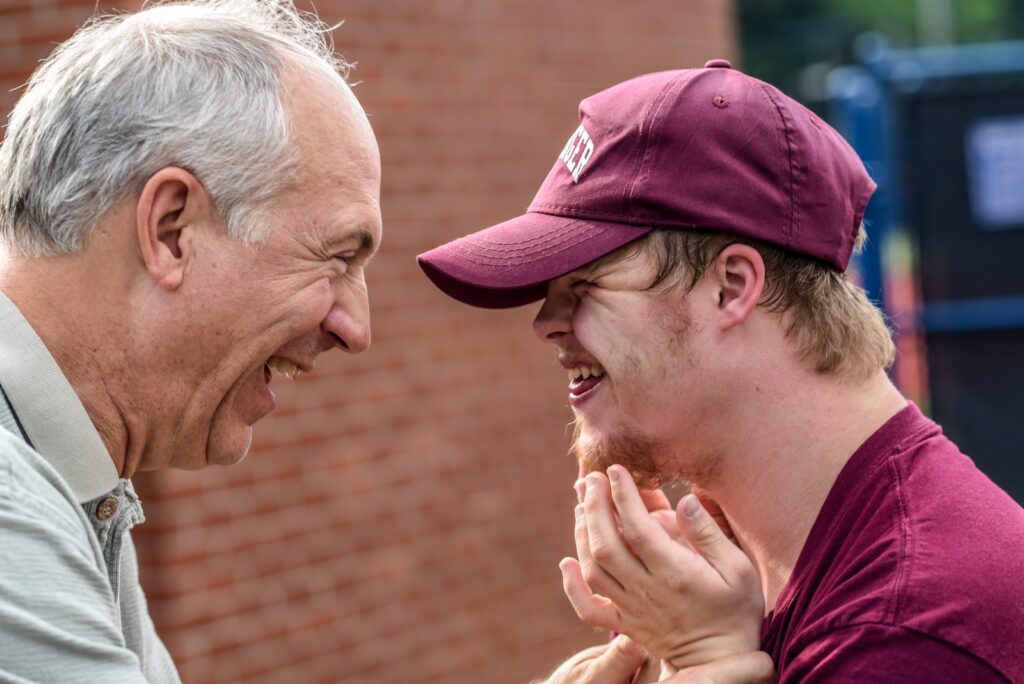
Boost 1: Set Goals
Write them down. Make a list of your goals, long and short term, and then below each goal write the steps it will take to get there. For example, if one of your goals is to launch a website to earn money, your list might look like this:
Launch Website
a. Reserve domain
b. Set up hosting
c. Contact web designer and discuss layout
d. Write a short ebook as a promotional giveaway
e. Write content and newsletters for site to cover several months after launch
Whether it's relationships, business ventures, or self-improvement, writing your goals and their necessary steps can make those goals much less formidable and much more doable. That alone helps you feel more confident in moving forward.
Boost 2: Stop Comparing
While it's good to have aspirations toward self-improvement, constantly comparing yourself to the best of the best in your realm can get discouraging. For example, if you'd like to have a talk radio show or Podcast, you might be inspired by high-profile radio hosts; being inspired by them is fine but beating yourself up because you are not exactly like they are – complete with millions of listeners – will only discourage you.
Boost 3: Build a Positive Self Image
It seems that when you are just certain you are going to fail before you try something, you are more likely to fail when you do try it. If you have a negative self-image and think you just can't achieve anything, it's likely that you won't – thus underscoring this false impression about yourself. Stop listening to the negative inner voice and instead tell yourself that you can achieve your goals and, even if you fail, it's not because you are a bad person or because you didn't try.

Boost 4: Get to Know Yourself
This means spending some quiet time thinking or writing in a journal – some quiet time by yourself in which you assess your strengths, weaknesses, and personality. What are your character traits? What quirks and talents do you have? Pretend like you are being interviewed and that the interviewer is trying to get to know you. What questions would they ask?
Boost 5: Turn Off the Media
For a while, it might be good to turn off the TV and put down the magazines. The perfect-people images found in the media can be discouraging for those who are struggling with self-confidence.
Conclusion
Self-confidence is an attitude on how you perceive yourself. You can fill yourself with flawed thinking or you can hold yourself up with realistic thinking of trust in yourself, skills and abilities. The amount of work is the same.
Which confidence boosters for paraeducators resonated with you the most? Let me know in the comments below or feel free to share what you do to radiate confidence.
